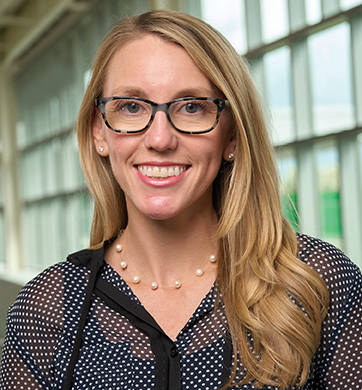Joy in the Work | Editorial
At a time when collaboration is endangered by conflict and critical thinking is often jettisoned in favor of the latest “hot take,” I can’t help but feel like library professionals are the leaders we need to secure a brighter future.
Letting library values lead the way
 A few years ago, I was asked to create a two-minute video sharing my vision for the “library of the future.” As I pondered the possibilities of Jetsons-esque technology (a device to detect the exact book I’d most like to read next?), my thoughts kept returning to the kind of world I most wanted in that future—a world that I only see possible with libraries.
A few years ago, I was asked to create a two-minute video sharing my vision for the “library of the future.” As I pondered the possibilities of Jetsons-esque technology (a device to detect the exact book I’d most like to read next?), my thoughts kept returning to the kind of world I most wanted in that future—a world that I only see possible with libraries.
I’m sure I’m not alone in dreaming about a future that is more equitable, more just, and more joyful. At a time when collaboration is endangered by conflict and critical thinking is often jettisoned in favor of the latest “hot take,” I can’t help but feel like library professionals are the leaders we need to secure a brighter future. Now, in this context, I’m referring to anyone working in the field who embraces the values foundational to libraries: intellectual freedom, open and equitable access, literacy, and learning. Because it’s those values—and the people who advance them—that will move us in the direction of a more perfect world.
Stepping into my new role with Library Journal, I want to explore the ways our values will help us navigate big changes. For instance, libraries have addressed digital inclusion with an emphasis on access but must think more expansively about digital adoption. In my decade at Cuyahoga County Public Library, OH, we installed full gigabit broadband at our branches to create a social safety net for connectivity. Yet the pandemic proved on-site access insufficient when we closed. As libraries deploy creative solutions for mobile broadband access, we also must be on the front lines advocating for universal broadband and designing new models for digital literacy training that may not be tied to our buildings.
Our collective experiences with floods, wildfires, and air quality alerts over the past year signal the need for urgent population-level changes. LJ has consistently covered the role libraries play in sustainable and resilient cities, anticipating the ways libraries provide critical social infrastructure in a climate-threatened world. As those threats become more acute, we’ll continue the conversation in LJ because we must be prepared to support communities devastated by climate impacts and to take a more proactive stance in addressing risk.
As if battling barriers and natural disasters weren’t enough, the social infrastructure afforded by libraries is essential to addressing the latest public health threat identified by the U.S. Surgeon General: loneliness. Research shows that social isolation can raise the risk for premature death in ways comparable to smoking. The antidote? Investment in institutions that cultivate and sustain connections. Libraries—the public spaces where ideas get shared, we engage in civic discourse, and neighbors bump into one another—can serve as an inoculation against an epidemic of loneliness.
When I first read the Surgeon General’s advisory, I was reminded of the social touchpoint the library provided my grandpa in the last years of his life. He’d regularly visit to check out books and DVDs (he selected some truly awful movies that we’d watch together), wave to Carol and Cindy at the circulation desk, and spend time being out in the world. When his health declined and visits became less frequent, staff would ask me about him, checking in when they hadn’t seen him. Those small acts of kindness, those connections—that’s social infrastructure at work.
Librarians face direct challenges today that touch the core of our professional expertise: censorship, the social effects of misinformation, pandemic learning loss, and more. Yet when I read about the incredible work being done by a staff of nine at a small library in Arizona (“Community Heartbeat,” pp. 16–19) or a library starting up a telehealth program during the pandemic (“Call a Doctor,” pp. 24–26), I cannot help but be hopeful and see joy. Poet Mary Oliver advises us not to dismiss joyful feelings, however small, as she brilliantly writes: “If you suddenly and unexpectedly feel joy, don’t hesitate. Give in to it.... Joy is not made to be a crumb.”
Working with the team at LJ feels like an absolute gift—as does engaging in these topics with you. I want to chat with you about the hard stuff, the joyful stuff, and everything in between, so please email me.
With gratitude,
Hallie Rich, Editor-in-Chief
hrich@mediasourceinc.com


RELATED
ALREADY A SUBSCRIBER? LOG IN
We are currently offering this content for free. Sign up now to activate your personal profile, where you can save articles for future viewing









Add Comment :-
Comment Policy:
Comment should not be empty !!!